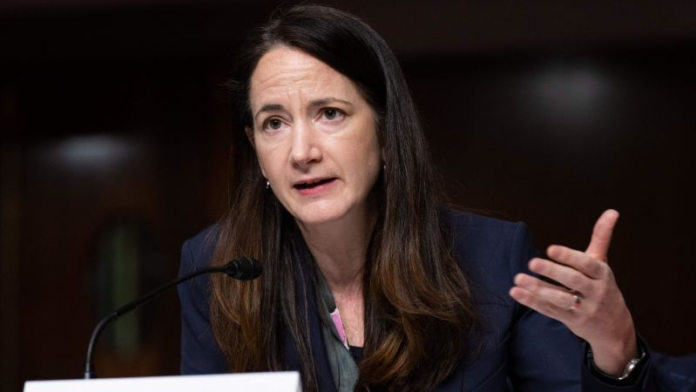CNN —
The US intelligence community is ramping up its focus on the dizzying and complex array of amorphous challenges that respect no global borders: Supply chain disruptions, pandemics, extreme weather events fueled by climate change and narcotics trafficking, among others.
In a national intelligence strategy document released on Thursday, the Biden administration continued to identify strategic competition between the United States and China as its most important challenge. But three years after the United States was gripped by the global coronavirus pandemic, it also emphasized that some of the greatest risks to the nation are second-order consequences of cross-border issues that are not caused by any one nation.
Food and energy insecurity caused by a changing climate, for example, can contribute to civil unrest and irregular migration that can in turn create geopolitical flashpoints. Understanding those complex dynamics has become a key goal of the intelligence community under the new strategy.
“The world is facing more frequent and intense crises due to the effects of climate change, narcotics trafficking, financial crises, supply chain disruptions, corruption, new and recurring diseases, and emerging and disruptive technologies,” the strategy reads. “These cross-border challenges are increasingly interacting with and compounding traditional state-based political, economic, and security challenges with unexpected second consequences, from food and energy insecurity to irregular migration, and civil unrest to conflict.”
The strategy also tasks the IC with a broader role in supporting the “resilience” of the nation – a catch-all term that covers protecting the US’s critical infrastructure against cyberattacks, providing early warning of an emerging new disease that may become the next pandemic, or understanding supply chain vulnerabilities before they become acute.
The strategy formalizes broad themes that intelligence leaders from the Biden administration have emphasized since entering office. Still, it underscores a challenging shift for the intelligence community as it broadens its remit from a myopic focus on traditional threats like terrorism or nation-state actors and towards more systemic problem sets.
“Shared global challenges, including climate change, human and health security, as well as emerging and disruptive technological advances, are converging in ways that produce significant consequences that are often difficult to predict,” Director of National Intelligence Avril Haines wrote in her introduction to the strategy.


